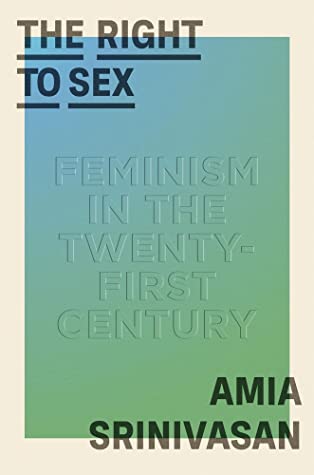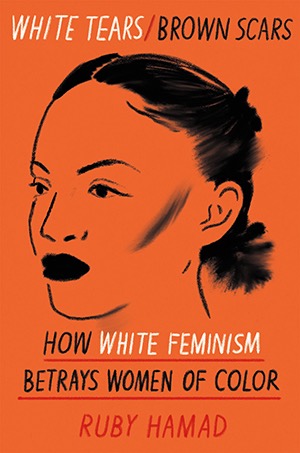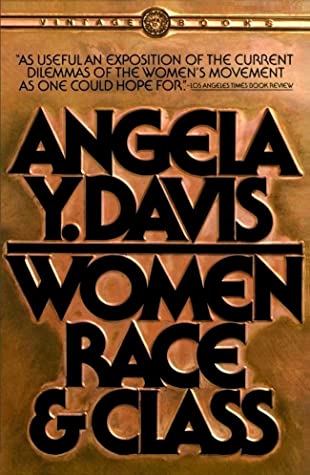Welcome to In The Club, a newsletter of resources to keep your book group well-met, well-read, and well-fed.
Do any of y’all watch the Critics Choice Awards? I only ever followed these film awards somewhat loosely before 2020, and with the pandemic, I’ve followed them even less. What brought the latest one to my attention was my friend speaking with me about a woman coming for the Williams sisters when they didn’t send for her.
While accepting an award for best director, Jane Campion thought the thing to say was “Serena and Venus, you are such marvels. However, you do not play against the guys like I have to.” Now, if that makes sense to you, I’m open to interpretations, because it’s giving misogynoir to me. The Williams sisters’ ability to not only preservere in a white-dominated sport, but also to be thee literal best while contending with racism and sexism does not need to be down played so that you can accept your movie award. All in the name of feminism, I guess? Girl, please.
Naturally, everyone came for her and she swiftly gave a tired little apology. This totally avoidable and unnecessary situation has also brought about discussions of the differences in what feminism means for many white women, versus what it means for non-white women.
Today’s books will explore this difference, and touch on what feminism looks like today.
Now, on to the club!
Nibbles and Sips
 |
I always love the addition of pistachio in Indian desserts whenever I come across it, and thought this saffron and pistachio blondie sounded good. Priya Krishna lays out the recipe and instructions for this one-pan masterpiece (it only takes an hour and white chocolate is involved!).
Now for the books!
What Does Feminism Mean to You?

The Right to Sex: Feminism in the Twenty-First Century by Amia Srinivasan
Srinivasan, a professor at Oxford, examines the idea of sex in the west, specifically the U.S. and the U.K. Through essays that make the argument that a seemingly private thing is actually a public concern, she asks how we should talk and think about sex. She argues that things like gender, class, race, sexuality, and immigration status should be considered when issues concerning consent are raised. Porn and its role in the objectification of women is also tackled, with Srinivasan questioning whether legislation would help in the internet age. She references second-wave feminism of the ’60s and ’70s, and touches on how laws that were seemingly made to protect vulnerable populations actually ended up harming them and strengthening oppressive institutions, especially in the case of sex work.
Book Club Bonus: What do you think of Srinivasan’s argument on legislation and vulnerable populations? Do you think the further marginalization of the vulnerable with these laws was intentional or merely unfortunate?

White Tears/Brown Scars: How White Feminism Betrays Women of Color by Ruby Hamad
Hamad covers much ground— from Zimbabwe to the U.S.— in her analysis of the culture and history of white feminism. She starts in the time of slavery in the Americas and how white women fought to keep Black people, which of course included Black women, enslaved to them. She argues how, since then, many of them have endorsed all of the evil trappings that come with colonialism, leaning onto the pedestal created for them by the patriarchy when convenient. Some of them have protected the privileges of “white womanhood” through the years by participating with white men in things like removing Indigenous children from their families and lynchings.
As evidence of this, she offers the example of how some white women will weaponize their tears in order to avoid accountability in the workplace, forcing the woman of color bringing them to task to accept blame lest she be labelled “aggressive.” Her cultural analysis includes everything from the Hunger Games to the lynchings of Mexicans in the American Southwest in the 19th century.
Book Club Bonus: Discuss what you think of the idea of exclusionary feminism having started in the time of slavery (at least for the U.S.). Do you think the type of women who believed in slavery if it benefitted them would be the same to believe in feminism?

Women, Race & Class by Angela Davis
Let’s take it all the way back, shall we? In this feminist classic, Davis also starts in the time of slavery. Enslaved Black women worked alongside the men in the fields as they, too, tried to fight against slavery whenever possible. These women embodied “hard work, perseverance and self-reliance, a legacy of tenacity, resistance and insistence on sexual equality – in short, a legacy spelling out standards for a new womanhood.” In other words, these women lived by feminist principles, but there has been a history of Black women and other women of color being separated from the movement.
Davis starts to explain when the divide took place as she details how Sarah and Angelina Grimke, two southern white sisters, fought for abolition and feminism simultaneously. Then, during the Suffrage movement, the interests of feminism changed, with Elizabeth Cady Stanton and Lucretia Mott leading their followers to focus on issues that largely did not apply to non white women or working class women. Davis continues through history to the present (this book was published in the early ’80s), discussing contemporary issues (like reproductive rights, etc.).
Book Club Bonus: Discuss the contemporary issues presented by Davis. Are they still relevant today, or have they largely been solved?
Don’t forget you can get three free audiobooks at Audiobooks.com with a free trial!
Suggestion Section
Here are some interesting, genre bending sci fi books
A fun quiz to match the literary animal to its book
Here are the finalists for the 2022 Lambda Literary Awards
Another quiz to find out what your next historical fiction read should be
In case you all didn’t hear about the assistant principal being fired for reading a silly book
Here’s the 2022 International Booker longlist
Cormac McCarthy is publishing two new novels
Fan of Paul Yoon? Here’s a new short story
I hope this newsletter found you well, and as always, thanks for hanging out! If you have any comments or just want to connect, send an email to erica@riotnewmedia.com or holla at me on Twitter @erica_eze_ . You can also catch me talking more mess in the new In Reading Color newsletter as well as chattin’ with my new cohost Tirzah Price on the Hey YA podcast.
Until next week,
E